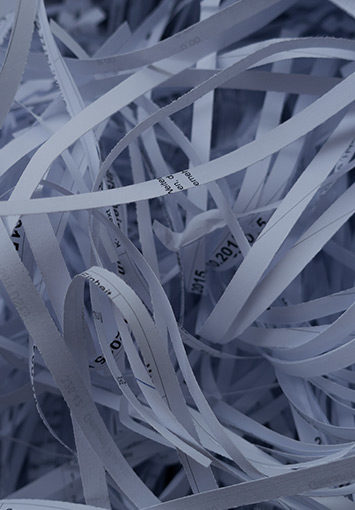Records Management Knowledge Center
Learn how to manage, organize, and store your critical data more efficiently.
Improving the accessibility and security of your data doesn't need to be difficult. Our knowledge base contains all the information you need to make informed decisions when its time to modernize your records management practices.
One of the most crucial responsibilities that any business has is to protect the confidentiality of the sensitive data in its possession. While only a small part of a larger overall data protection program, shredding unnecessary/outdated documents is one of the simplest and most effective ways to ensure that sensitive data is protected against information
Optical character recognition (OCR) is technology that allows computer software to convert text found in a scanned document or image into machine-readable text. Anyone who has ever been to the airport, sent a letter in the mail, or deposited a check at an ATM has used OCR technology. The most common use of OCR technology
Over the last few years, the landscape of work and employment has undergone a particularly dramatic shift. Working remotely, which traditionally has only been an option for a small percentage of people, has exploded in popularity, capturing the attention of employers of all different shapes and sizes. And while there are a number of fairly
Most business owners know that paper is a slow, outdated technology that adds unnecessary costs at every turn. It can make even the simplest of tasks more difficult, resulting in longer turnaround times and subsequently, increased labor costs. Employees can waste hours a week fumbling through filing cabinets looking for the documents they need. Not only
Government agencies are the largest source of paper documentation and microfilm records in the country. This is because government agencies are responsible for the preservation of tax documents, business licenses, permits, financial documents, historical records, and more. At one time, paper and microfilm were the gold standards of information storage. Not just in government, but
One of the most critical responsibilities that a business has is protecting the sensitive data in its possession. Whether it’s proprietary business processes, internal communications, employee records, or information collected from your customers, your data is under a constant threat of theft or potential exploitation. And the consequences of such an unfortunate event should not
For most of the twentieth century, microfiche and microfilm were the preferred methods used to store images, blueprints, schematics, maps, and other important documents for extended periods of time. At the peak of its popularity, there was no other format with the same versatility or longevity. Microform technology made it possible to reduce documents on
Whether it’s customer/client details, financial records, proprietary company information, or employee files, most organizations eventually find themselves in possession of sensitive data. More often than not, a large percentage of that data is stored on paper.
The increased demand on HR departments to manage these documents added hours of manual data entry, which led to a litany of administrative issues including misfiled/lost records, compliance issues, and inefficient workflows. Thankfully, the source of these issues is well known: outdated paper-based records keeping.
For medical practices and healthcare facilities, meeting the needs of patients and providing quality care is the top priority. Unfortunately, this huge responsibility comes with a TON of paperwork. That’s because in addition to the standard employee recruitment and hiring documents, compensation and benefits records, and payroll documents a typical business is responsible for, medical









